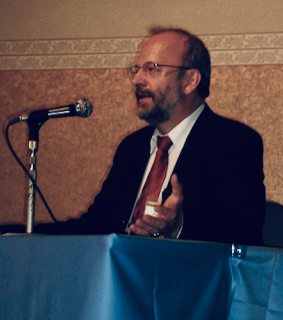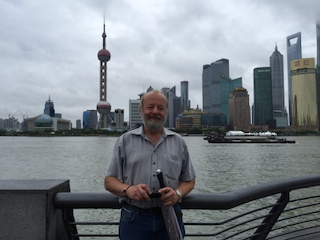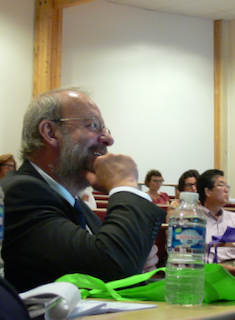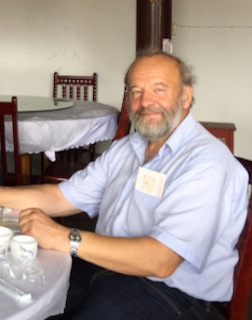
Obituary – Peter Maria ECKL, 11.2.1954 – 28.9.2019
Peter ECKL started his scientific career in the late-1970s at the University of Salzburg working in the field of radiation research. As post-doc he moved to the lab of Randy Jirtle at Duke University (Durham, North Carolina, USA) where he succeeded in establishing serum – free culture conditions which allowed the use of proliferating primary rat hepatocytes for genotoxicity testing using cytogenetic endpoints such as micronucleus formation, chromosomal aberrations and sister chromatid exchanges. Returning to Salzburg, Peter ECKL qualified as a professor for “Cytology and Genetics” and in 2015 was appointed full professor at the University of Salzburg. Since the late 1980s, Peter Eckl intensified his research focus on genotoxicity testing in primary hepatocytes and extended the method to fish hepatocytes. In those “early years”, the lipid peroxidation products hydroxyalkenals, as for many of the HNE-seniors,also stimulated the interest of Peter Eckl. This is reflected by his first HNE-related publication on the “Genotoxic properties of 4-hydroxyalkenals and analogous aldehydes” which he published together with Hermann Esterbauer (Eckl et al., 1993. Mutation Research 290: 183 – 192). From this time on, the biological aspects of oxidative stress, lipid peroxidation and especially “the cell biology of HNE” became an essential focus in Peter Eckls scientific interests, several lines of investigation converging in this central context. Research conducted in the “Eckl – Lab” comprised studies on the effects of oxidative stress and HNE in cerebral endothelial cells and astrocytes, investigations on the genotoxicity of b-carotene breakdown products as well as studies on the antioxidant / anti-mutagenic properties of vitamins and compounds of ethno-pharmacological interest. With the finding of ferritin cytotoxicity in 2002 (actually the same time when the first international meeting of the HNE – club took place in Salzburg), iron touched his scientific attempts. Years later, not unexpectedly, this effect turned out to be yet another “lipid-peroxidation / HNE associated story”. This also influenced Peter Eckls research interests in the last years, addressing those mechanisms by which oxidatively stressed cells may cope with the elimination of lipid-peroxidation products, especially aggregates of HNE-modified proteins. In March 2019, one year before retirement, Peter Eckl moved to Darmstadt, Germany to start his last research project at MERCK in the course of his sabbatical.
Gifted with a generous, considerate and creative personality, Peter Eckl was a highly respected colleague and teacher, also open-minded for the “unusual approach”. Nevertheless, when considerations seemed too speculative, Peter Eckl could also be challenging and act as “advocatus diavoli” who is expressing an annoying, yet indispensable criticism which improves scientific significance ….
Peter ECKL also was an engaged scientific networker. He was participating in numerous national and international research activities and scientific organizations. For the benefit of the University of Salzburg, this also became manifest when Peter Eckl held the position as Vice-Rector for research from 1999 – 2003. Belonging to the founders of the HNE-club, Peter Eckl was always strongly affiliated to this constantly expanding community. In 2002, he organized the first international meeting of the HNE-club in Salzburg which also included two practical, HNE – related workshops given in his laboratory. Some may also still remember the very first opening remarks given by Peter Eckl, Giuseppe Poli and Alberto Boveris (that time president of the SFRR). Peter Eckl also served many years as chairman and lastly as treasurer of the HNE-club.
Unexpectedly, Peter ECKL passed away on September 28th, 2019. With him, the HNE-club loses a “convinced HNE-ambassador”, a highly – merited, esteemed member of the scientific community and an outstanding, valuable friend. Peter, you will be greatly missing.
Nikolaus Bresgen and Jörg Schaur



